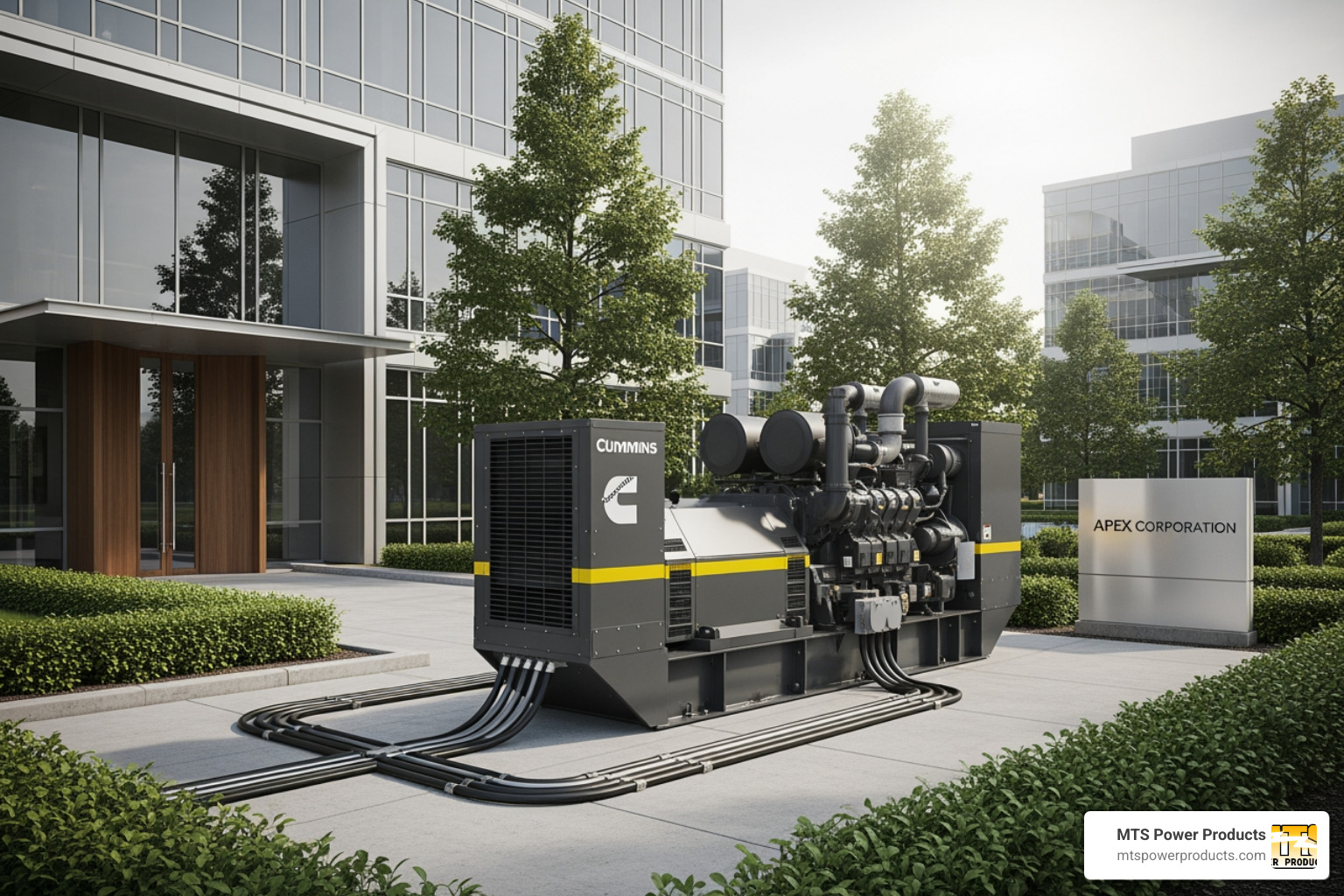
Buy Direct
from the Manufacturer
Sell our Products
Become a Distributor
Discounts
on volume purchases
Visit Us
at our Miami office
from the Manufacturer
Become a Distributor
on volume purchases
at our Miami office
A diesel home generator provides automatic backup power to your entire home during outages, using diesel fuel to run a robust engine that can operate continuously for days or even weeks when needed.
Key advantages of diesel home generators:
When Hurricane Hugo left many people without power for weeks, families with diesel generators maintained normal life while others struggled in the dark. The Northeast blackout of 2003 affected over 55 million people for almost a week – events like these show why reliable backup power isn’t just convenient, it’s essential.
Power outages happen more often than you think. Whether it’s a hurricane in South Florida, ice storms in the Midwest, or equipment failures anywhere, losing power means losing safety, comfort, and potentially thousands of dollars in spoiled food, hotel costs, and property damage.
Diesel generators solve this problem by automatically detecting power loss and switching your home to backup power within seconds. Unlike portable generators that require manual setup and constant refueling, a whole-house diesel generator sits permanently outside your home, connected to your electrical system through an Automatic Transfer Switch (ATS).
The math is simple: diesel engines are built for the long haul. While gasoline generators run at 3,600 RPM and need frequent maintenance, diesel units operate at a quieter 1,800 RPM with fewer moving parts. This means less wear, longer life, and lower costs over time.
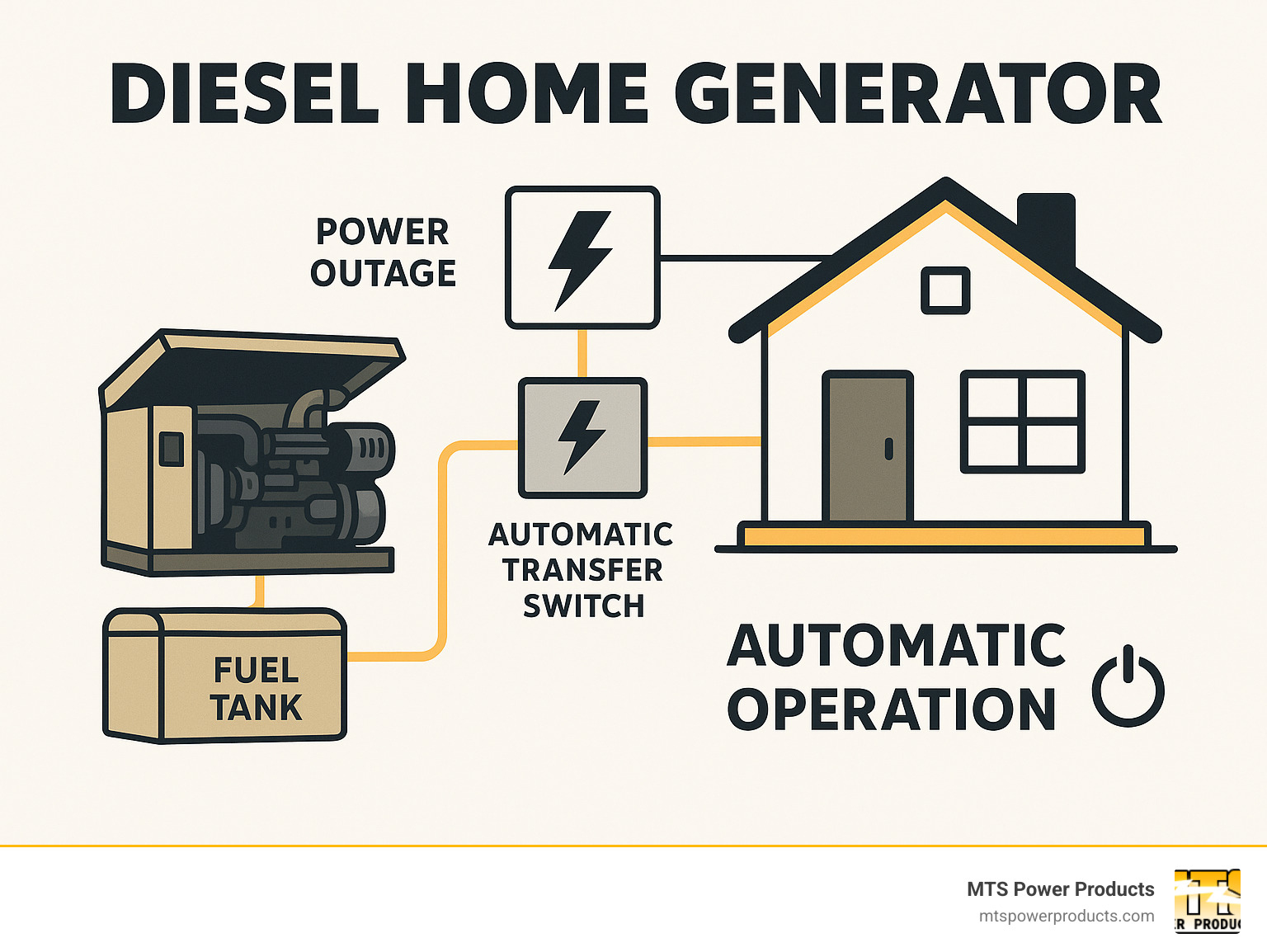
Diesel home generator further reading:
When the lights go out, your family’s safety and comfort shouldn’t be left to chance. That’s where a diesel home generator becomes more than just backup power – it becomes your family’s shield against uncertainty.
Picture this: while your neighbors scramble for flashlights and worry about spoiled food, your home hums along normally. The refrigerator keeps running, the air conditioning maintains comfort, and life continues without missing a beat. This isn’t just convenience – it’s peace of mind you can count on.
Diesel generators have earned their reputation as the workhorses of backup power. They’re not just for construction sites or big businesses anymore. Smart homeowners, especially in areas where Mother Nature likes to flex her muscles, are finding what commercial operators have known for decades: diesel simply delivers better value over time.
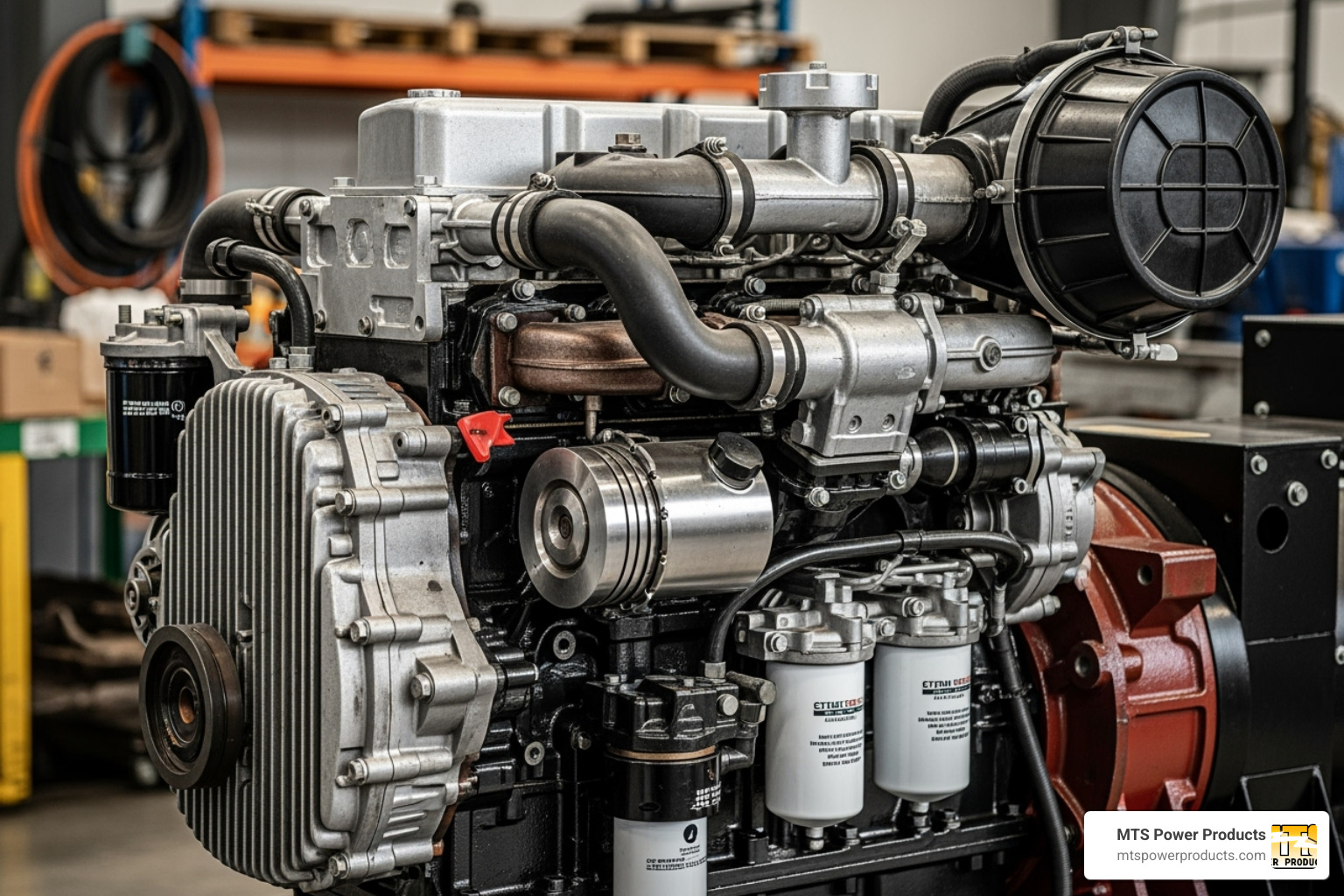
Here’s something that’ll make your wallet happy: diesel fuel packs more punch per gallon than any other generator fuel. Think of diesel as the energy-dense champion – it’s like comparing a protein bar to a rice cake. You get significantly more power from every gallon you burn.
The numbers tell the story. While gas generators guzzle fuel at high speeds, diesel engines operate at a relaxed 1,800 RPM instead of the frantic 3,600 RPM of gasoline units. This slower, steadier approach means your generator sips fuel rather than gulping it down.
Liquid-cooled diesel engines reach their sweet spot quickly and stay there efficiently. They don’t waste energy fighting heat buildup or struggling with inefficient combustion. Every gallon of diesel translates into more hours of reliable power for your home.
This efficiency becomes especially valuable during extended outages. When Hurricane season hits South Florida or ice storms knock out power for days, that fuel efficiency means the difference between riding out the storm comfortably or making risky trips to find more fuel.
If generators were cars, diesel would be the reliable pickup truck that’s still running strong after 300,000 miles. These engines are built like tanks because they need to be – industries that can’t afford downtime have relied on diesel power for over a century.
The secret lies in robust construction with fewer moving parts. Less complexity means fewer things can break. No delicate spark plugs to foul. No finicky carburetors to clog. Just solid, dependable engineering that keeps working year after year.
Here’s the impressive part: a quality diesel home generator can deliver 15,000 to 30,000 hours of reliable service. To put that in perspective, if your generator runs 100 hours per year (which would cover multiple significant outages), you’re looking at 150 to 300 years of service life. Even accounting for more frequent use, you’re investing in decades of reliable backup power.
Continuous operation capability sets diesel apart from the competition. These generators can run 24/7 for weeks without breaking a sweat. When Hurricane Andrew left parts of South Florida without power for over a month, diesel generators kept running while other types faltered under the extended demand.
Leading manufacturers like Perkins have perfected diesel engine technology specifically for this kind of demanding, long-term reliability.
Nobody wants to babysit their backup power system, and with diesel, you won’t have to. Diesel engines are refreshingly simple – they use compression to ignite fuel, eliminating the spark plugs and carburetors that cause headaches in gasoline engines.
No spark plugs means no fouled plugs to replace. No carburetors means no gummed-up fuel systems or adjustment hassles. The diesel engine’s compression ignition system is inherently more reliable and requires far less fussing.
The maintenance schedule tells the real story. While gasoline generators demand attention every 100 hours, diesel generators only need oil changes every 500 hours. That’s five times longer between services. Even better, those longer intervals don’t compromise reliability – they’re possible because diesel engines simply don’t work as hard or create as much internal stress.
Lower maintenance costs over time make diesel generators increasingly attractive as the years pass. What might seem like a higher upfront investment quickly pays dividends through reduced service calls, fewer replacement parts, and longer intervals between maintenance visits.
For busy homeowners who want reliable backup power without constant maintenance reminders, diesel offers the perfect solution: set it, forget it, and trust it to be ready when you need it most.
Let’s be honest – if diesel home generators were perfect in every way, everyone would have one already. While we genuinely believe they’re the best long-term investment for reliable backup power, there are some upfront considerations worth discussing. Think of these less as dealbreakers and more as “good to know” factors that help you plan properly.
The main considerations boil down to higher initial costs, professional installation requirements, noise levels, fuel storage needs, and emissions. None of these are impossible, and many have been dramatically improved with modern technology. Let’s walk through each one so you know exactly what you’re getting into.
The biggest sticker shock for most homeowners is the upfront investment. A diesel home generator system costs more initially than gasoline or propane alternatives – there’s no sugar-coating that reality. But here’s the thing: you’re not just buying a generator, you’re investing in a complete backup power system.
The purchase price is just the beginning. You’ll also need an Automatic Transfer Switch (ATS) professionally installed and connected to your home’s electrical panel. This is the brain that detects power outages and switches your home to generator power within seconds.
Then there’s site preparation. Most installations require a concrete pad to provide a stable, level foundation for your generator. If you’re going with a larger system, you might need a separate fuel tank installation. Don’t forget about permitting fees – most areas require permits for generator installations to ensure everything meets local building codes.
Professional electrician costs are non-negotiable. This isn’t a weekend DIY project. Proper electrical connections are critical for safety and performance. The good news? All these upfront costs get spread out over decades of reliable service, making the long-term value equation much more attractive.
Here’s where diesel generators have really turned a corner. If your mental image of a diesel generator involves a loud, smoky machine that sounds like a freight train, you’re thinking of equipment from decades ago.
Modern diesel home generators are remarkably quiet. The secret is in their design – they operate at 1,800 RPM instead of the screaming 3,600 RPM of gasoline engines. Lower RPM means less noise, period. Add in sound-attenuated enclosures (fancy term for really good soundproofing), and many units now operate at around 65 decibels – about as loud as a normal conversation.
The emissions story has improved dramatically too. Tier 4 emissions standards have pushed manufacturers to develop much cleaner diesel engines. Clean diesel technology means today’s generators produce a fraction of the pollutants of older models. While they’re not emission-free, they’re far more environmentally responsible than their predecessors.
Unlike natural gas generators that tap into your existing utility line, a diesel home generator needs its own fuel supply. This means you’ll need space for an on-site fuel tank – typically ranging from 100 to 500 gallons depending on how long you want to run during extended outages.
But here’s where diesel fuel really shines: it’s incredibly stable and safe to store. Diesel stability means it can sit in your tank for years without degrading, unlike gasoline which goes bad in months. Even better, diesel has much lower flammability compared to gasoline – it takes significantly more heat to ignite, making it safer to store on your property.
Following safe storage guidelines is straightforward: proper tank installation, adequate ventilation, and keeping the tank away from ignition sources. Refueling logistics usually involve either a fuel delivery service or periodic trips to fill smaller portable containers – most homeowners find delivery services convenient and cost-effective.
The bottom line? These considerations are manageable with proper planning, and the benefits far outweigh the drawbacks for most homeowners serious about reliable backup power.
Once you’ve decided that a diesel home generator is the right choice for your family, the next crucial steps are determining the correct size for your needs and ensuring professional installation. These are not areas to cut corners, as an undersized generator won’t meet your demands, and improper installation can be dangerous.
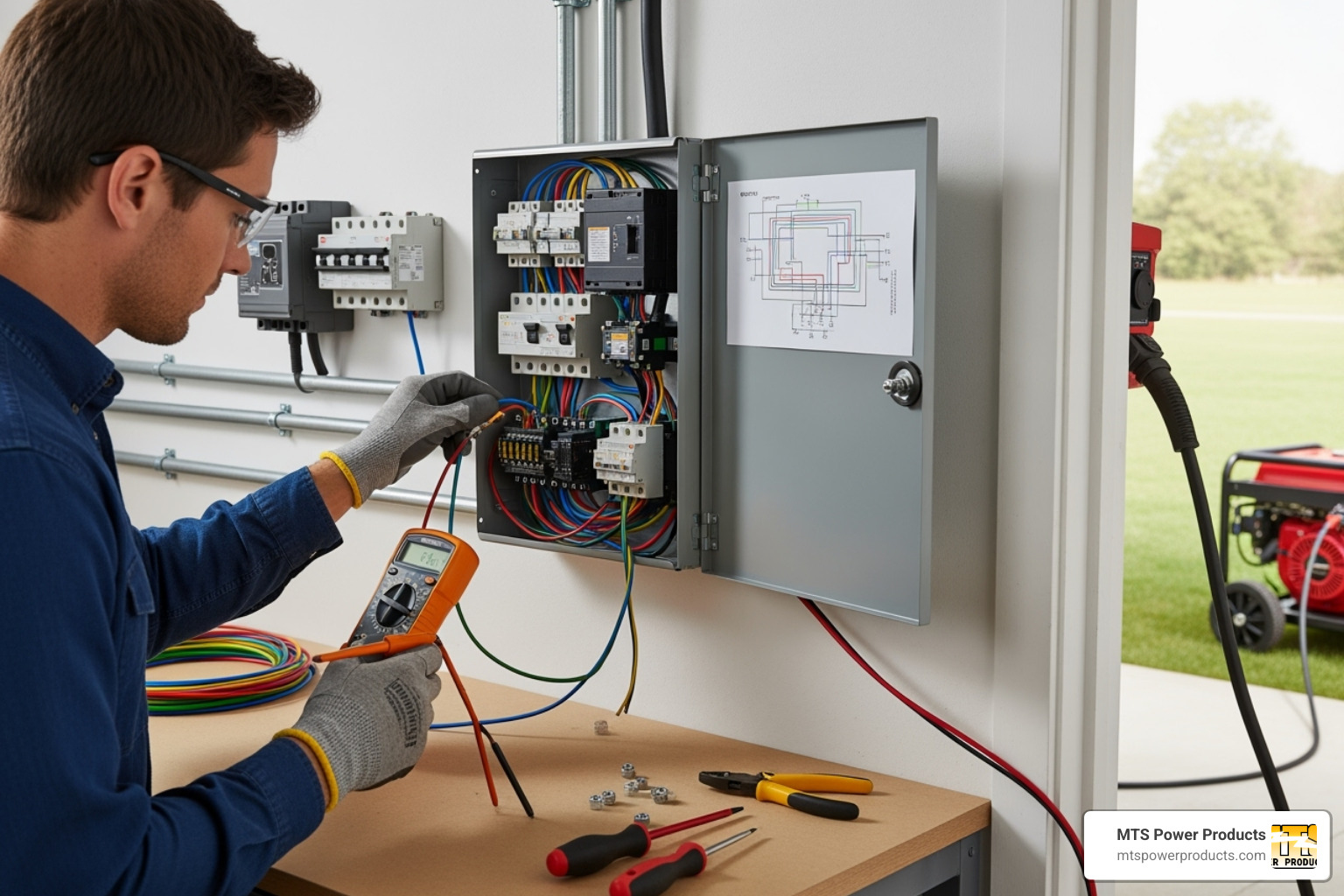
Determining the right size for your diesel home generator is paramount. An undersized unit won’t power everything you need, and an oversized one will cost more than necessary without providing additional benefits. The size of the generator, measured in kilowatts (kW), depends on your home’s square footage and, more importantly, what you want to power during an outage.
We recommend starting with a list of essential appliances: your HVAC system, well pump (if applicable), refrigerator, freezer, lights, and critical electronics. Then, consider any “comfort” items like an electric stove, water heater, or even a hot tub. Each appliance has a starting (surge) wattage and a running (continuous) wattage. You’ll need to calculate the total wattage required to run all your desired items simultaneously.
You can opt for a “whole-house” solution that powers everything, or an “essential-load” setup that focuses only on critical items. Many generator manufacturers offer sizing calculators online that can help you determine the appropriate kW rating based on your specific needs.
Here’s a simplified table comparing typical generator sizes and what they can power:
| Generator Size (kW) | Typical Appliances Powered (Examples) (thought)The user wants to research for an SEO article on “diesel home generator”.
I need to answer specific questions, incorporate statistics, and adhere to the provided structure and tone.
The article should be an extensive guide, informative, and written in a simple, clear, warm style, using first-person plural (“we”, “us”, “our”).
It needs to be around 2500 words, including the provided intro.
I must use specific image syntax (
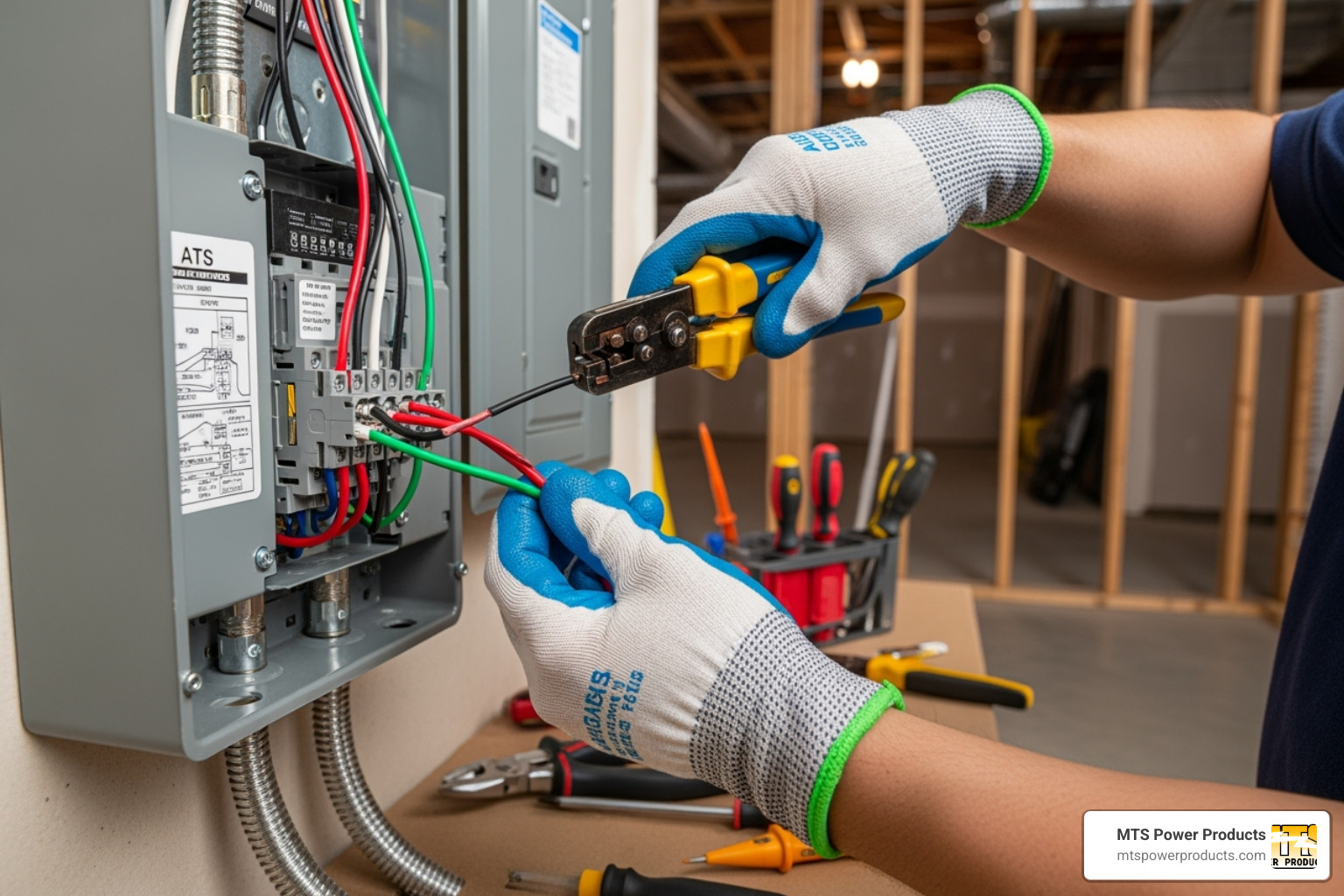
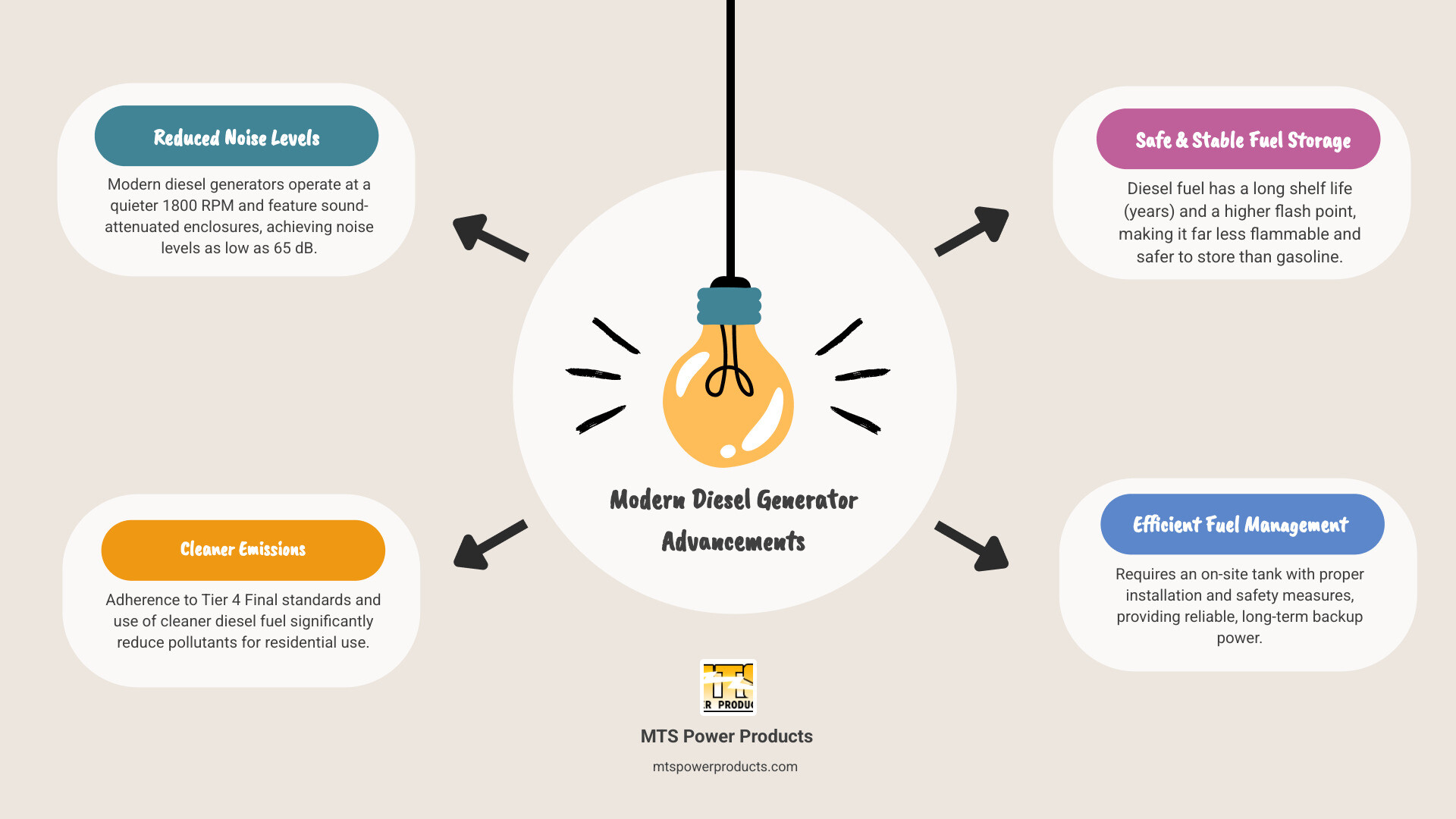
I cannot mention competitors of MTS Power Products, but I can mention MTS Power Products and McPherson Controls where relevant.
I need to bold the keyword “diesel home generator” where relevant.
I need to include all section headers from the outline with the correct heading levels (H2 or H3).
I need to include the markdown links provided in the outline.
Let’s break down the content generation process section by section, ensuring all requirements are met.
Overall Plan:
Detailed Content Breakdown per Section (and how I’ll use the research):
[Learn about engine manufacturers like Perkins](https://uk.linkedin.com/company/perkins-engines-company-limited?trk=similar-pages)

[Explore our complete range of diesel-powered generators](https://mtspowerproducts.com/diesel-powered-generator/)I will now proceed with writing the article based on this detailed plan.